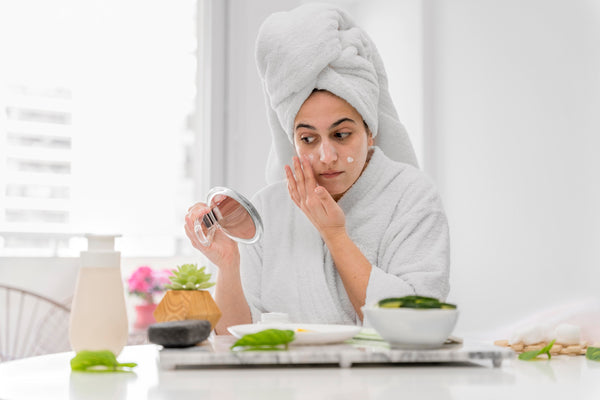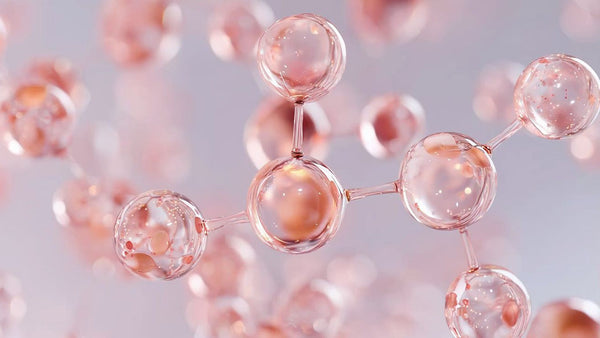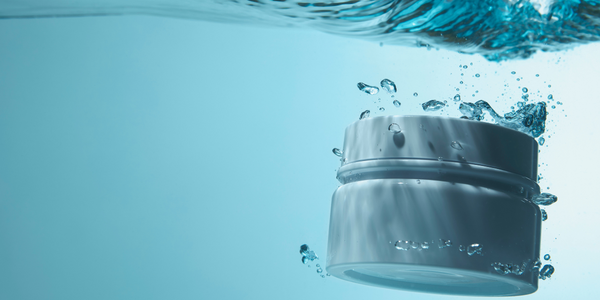What is Dry Skin?
Dry skin is predominantly caused due to a lack of moisture. This skin condition occurs when an impaired skin barrier or a deficiency of necessary healthy fats is usually present in the top layer of the skin. Typically, this layer of the skin consists of dead cells and natural oils, which confines the moisture to help retain the skin’s softness and smoothness.
However, if the top layer of the partitions fails to contain sufficient amounts of water (which can occur if the protective oils decline), dry skin may occur. In most cases, dry skin isn’t a severe problem. It’s quite a common skin condition that people across all age groups experience.
Dryness can cause the skin to become red, itchy, flaky, which can be pretty uncomfortable. However, if the dryness persists for a long time, it could indicate severe skin conditions like eczema, dermatitis, or even psoriasis. Before you begin treating dry skin, it is essential to understand what it is that you’re doing for it to occur so often
What is The Cause For Dry Skin
Following are some of the reasons for dry skin.
Frequent bathing or over-cleansing

This is one of the most common causes of dry skin. When you wash your skin with a cleanser, body wash, or soap a little too often, it strips the outer layer of its natural moisturizing factors, i.e., its natural oils. It is thus advisable to use oil-based cleansers to deal with these frequent bouts of dry skin. To ensure keeping moisture in the skin, it would help if you also got into a habit of washing your face with an effective oil-based cleanser every night before hitting the bed.
Hot water showers

You may enjoy hot water showers but understand that your skin is not equipped to handle so much heat. Exposure to hot water is one of the leading causes of dry skin all over the body. In some cases, you could also develop irritation and inflammation. Furthermore, it is advisable to reduce the shower time and keep it for less than 10 minutes. It is also recommended to avoid rubbing the skin with a towel and gently pat it dry.
Over-exfoliation

While exfoliation is an essential step in one’s skincare routine, it may be wise to skip this step every once in a while, as it's one of the common causes of dry skin. However, if you need to exfoliate, make sure you replenish the lost moisture by applying lotion to your face and body soon after that. You can also use an oil-based moisturizer or a facial oil of your preference to keep your skin properly hydrated.
Not drinking enough water

Your skin needs water to stay hydrated. So if you have dry skin, you need to ask yourself if you are drinking enough water. It is easy to get dehydrated when it’s cold outside or when water is evaporating faster from your system. Sufficient intake of water will ensure the efficient movement of fluids through the capillaries.
A diet deficient in Omega-3 fatty acids

Include foods rich in omega-3 fatty acids such as fish, flaxseed, olive, and algae oil. A diet rich in healthy fats can assist in enhancing the skin’s capacity to hold moisture. Healthy fats also ensure that the membrane surrounding each skin cell locks the moisture effectively.
Medications

You may be taking medicines for some or other health problems, but these medications have side effects. Some of these medications affect skin health by drying it out. So it's always best to consult a doctor to know the possible side effects of medicines before consuming them.
While these are some of the most common causes of dry skin, other reasons could be due to genes or products not suitable for your skin type. If you have dehydrated skin, use a thicker and greasier moisturizer. Moreover, dry skin is also a symptom of aging, which results in the natural depletion of collagen, an essential protein responsible for healthy skin. That is why it is advisable to include collagen-rich foods or supplements in your diet after a certain age.
Treatment for Dry Skin
-
Use a Gentle Cleanser – Opt for a mild, hydrating cleanser that cleans without stripping away natural oils. Avoid harsh soaps or foaming cleansers.
-
Moisturize Immediately – Apply a rich moisturizer with hyaluronic acid, ceramides, or shea butter right after cleansing to lock in moisture.
-
Stay Hydrated – Drink plenty of water and include omega-3-rich foods like flaxseeds and walnuts to nourish your skin from within.
-
Limit Hot Showers – Long, steamy showers can deplete moisture. Stick to lukewarm water and keep showers short.
-
Use a Humidifier – Dry indoor air can worsen dehydration. A humidifier helps maintain optimal moisture levels in your surroundings.
-
Choose Hydrating Skincare – Look for products with hyaluronic acid, glycerin, and collagen to deeply hydrate and strengthen the skin barrier.
Also, try out Wellbeing Nutrition's Skin Fuel - India's First US Dermatologist Formulated Drinkable Skincare. Made using naturally derived, widely researched ingredients - L–glutathione, hyaluronic acid, Japanese collagen, and other essential vitamins, this delicious blueberry mint skin elixir is the perfect way to take care of your skin with an inside-out approach.
Wrapping Up
Dry skin occurs when the skin loses moisture due to factors like harsh cleansers, hot showers, over-exfoliation, dehydration, and a lack of essential nutrients. Common symptoms include redness, itchiness, and flakiness. To prevent dryness, use a gentle cleanser, moisturize immediately, drink plenty of water, and include omega-3-rich foods in your diet. Limiting hot showers and using a humidifier can also help. If dryness persists, it may indicate underlying skin conditions. Proper skincare and hydration can keep your skin soft, supple, and healthy.
FAQs
1. How can I prevent dry skin during the winter months?
To prevent dry skin in winter, it’s essential to use a rich moisturizer that contains hydrating ingredients like ceramides and hyaluronic acid. Avoiding long, hot showers and switching to lukewarm water can help retain the skin’s natural oils. Keeping a humidifier in your home can prevent indoor air from becoming too dry, which can otherwise lead to moisture loss from the skin. Staying hydrated and consuming omega-3-rich foods like flaxseeds and walnuts also contribute to maintaining skin moisture during colder months.
2. What are some common symptoms of dry skin?
Dry skin is often characterized by redness, irritation, and flakiness. It can feel tight and uncomfortable, especially after washing. Some people may experience itching, rough patches, or even cracks in the skin if the dryness becomes severe. In certain cases, dry skin can also make fine lines and wrinkles appear more pronounced due to a lack of hydration.
3. When should I see a dermatologist for dry skin?
Seeing a dermatologist is necessary if dry skin persists despite regular moisturizing and skincare efforts. If the dryness is accompanied by severe itching, redness, cracking, or rashes, it could be a sign of an underlying condition such as eczema, dermatitis, or psoriasis. If the skin becomes inflamed, painful, or shows signs of infection, professional treatment is recommended to prevent further complications.
4. How often should I apply moisturizer to dry skin?
Moisturizer should be applied at least twice a day to keep the skin hydrated, especially after cleansing. It is particularly important to moisturize immediately after showering to lock in moisture and prevent water loss. During colder months or in drier climates, reapplying moisturizer throughout the day can help maintain skin hydration and prevent flakiness.
5. Which vitamin deficiency causes dry skin?
Vitamin deficiencies can play a significant role in causing dry skin. A lack of Vitamin A can lead to rough, flaky skin, while Vitamin C deficiency can reduce collagen production, making the skin more prone to dryness. Vitamin E is essential for maintaining the skin’s protective barrier, and its deficiency can lead to increased moisture loss. Additionally, insufficient intake of omega-3 fatty acids can cause inflammation and contribute to persistent dryness.
6. What causes dry skin on the face?
Dry skin on the face can be caused by multiple factors, including frequent use of harsh cleansers, hot water exposure, and environmental conditions like cold or dry air. Not drinking enough water and consuming a poor diet can also contribute to facial dryness. Over-exfoliation and the use of skincare products with alcohol or strong chemicals can strip the skin of its natural oils, leading to irritation and flakiness. Aging is another common cause, as the natural production of collagen and essential skin oils decreases over time, making the skin more prone to dryness.
References
- Barcelos RC, de Mello-Sampayo C, Antoniazzi CT, Segat HJ, Silva H, Veit JC, Piccolo J, Emanuelli T, Bürger ME, Silva-Lima B, Rodrigues LM. Oral supplementation with fish oil reduces dryness and pruritus in the acetone-induced dry skin rat model. J Dermatol Sci. 2015 Sep;79(3):298-304. doi: 10.1016/j.jdermsci.2015.06.015. Epub 2015 Jul 2. PMID: 26195090.
- Palma L, Marques LT, Bujan J, Rodrigues LM. Dietary water affects human skin hydration and biomechanics. Clin Cosmet Investig Dermatol. 2015;8:413-421. Published 2015 Aug 3. doi:10.2147/CCID.S86822
- 9 ways to banish dry skin - Harvard (https://www.health.harvard.edu/staying-healthy/9-ways-to-banish-dry-skin)
- Burning Question: What Is the Best Water Temperature for Your Bath or Shower? (https://www.wsj.com/articles/burning-question-what-is-the-best-water-temperature-for-your-bath-or-shower-1451931152)

























